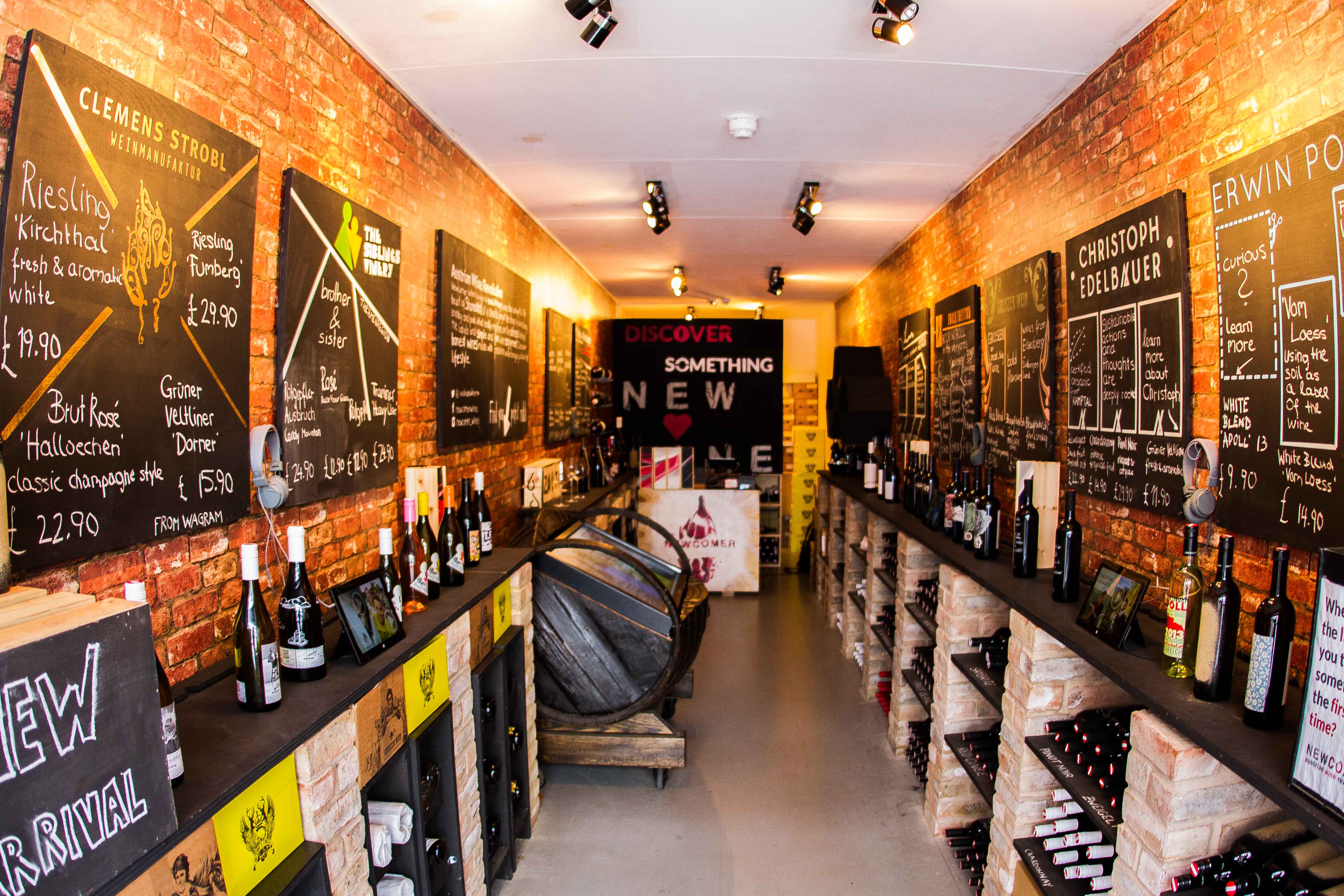In the recent post by Kevin Lo, he expresses the need for businesses to move online in an effort to adapt to the changing market. He argues that technological improvements should incentivize companies to improve their services rather than intimidate them. He also says that as commerce moves online, larger businesses would have an advantage over smaller companies due to their vast resources. I am a strong believer with the idea that companies should utilize the advantages innovations in technology can offer. Online marketing has  unbounded possibilities as it allows businesses, when done right, to reach a much larger audience than traditional marketing. It also allows companies to gather better information on their customers and develop their service to fit their needs. As the population move away from traditional media such as cable TV, radio, and newspapers in favour of mobile devices, it is important that businesses keep up with their consumers. However, I don’t believe that large businesses have a huge advantage in the online world. Due to the constant decrease in the price for technology, even the busiest and most financially constrained companies have the ability to set up a basic website to advertise and sell their services. Despite the internet is no new invention, it is still a very free-for-all platform where companies all have chances to succeed and are pushed to the side less by big companies than they may in the offline world.
unbounded possibilities as it allows businesses, when done right, to reach a much larger audience than traditional marketing. It also allows companies to gather better information on their customers and develop their service to fit their needs. As the population move away from traditional media such as cable TV, radio, and newspapers in favour of mobile devices, it is important that businesses keep up with their consumers. However, I don’t believe that large businesses have a huge advantage in the online world. Due to the constant decrease in the price for technology, even the busiest and most financially constrained companies have the ability to set up a basic website to advertise and sell their services. Despite the internet is no new invention, it is still a very free-for-all platform where companies all have chances to succeed and are pushed to the side less by big companies than they may in the offline world.
Monthly Archives: November 2015
Why a Winery in Shoreditch was Sure to Ditch Traditional Retail Technology
While contactless payments are not a new phenomenon, new technology is making paying faster while also creating struggles for stores as they try to keep up with new forms of payment. From the old debit and credit cards to tap-to pay to digital wallets on new smartphones and watches, contactless payments are everywhere. As of recently, contactless payments have become more popular than traditional cash, marking a huge change in the way customers expect stores to operate, setting a standard for points-of-sale. Newcomer Wines, in London’s  Shoreditch district, is trying to keep their customers happy by enhancing their experience in the store with the latest technology. The winery provides touch-screen tablets allowing customers to browse wines and foods to pair them with. Following this, the wines can be purchased with the latest in payment technologies. It is important for businesses to be compatible with a variety of contactless payments as they continue to exponentially grow. As electronic payments become more commonplace, businesses may lose out on sales or give their customers an unsatisfactory experience as a result of not having the latest and greatest in technology. Technology also allows businesses to collect data on their customer base including country of residence, popularity of wines, and average spent within the store. It can also streamline processes and reduce labour costs by having innovative technology do the work of an employee. While constantly upgrading to the latest technology can seem daunting and expensive, it is always important to consider how it could help your business and customers.
Shoreditch district, is trying to keep their customers happy by enhancing their experience in the store with the latest technology. The winery provides touch-screen tablets allowing customers to browse wines and foods to pair them with. Following this, the wines can be purchased with the latest in payment technologies. It is important for businesses to be compatible with a variety of contactless payments as they continue to exponentially grow. As electronic payments become more commonplace, businesses may lose out on sales or give their customers an unsatisfactory experience as a result of not having the latest and greatest in technology. Technology also allows businesses to collect data on their customer base including country of residence, popularity of wines, and average spent within the store. It can also streamline processes and reduce labour costs by having innovative technology do the work of an employee. While constantly upgrading to the latest technology can seem daunting and expensive, it is always important to consider how it could help your business and customers.
Entrepreneurs in University – A Reply to Rad Mosh
In the article titled “Should Aspiring Entrepreneurs go to College” by Rad Mosh, he explores the need of an undergraduate degree to an aspiring entrepreneur. Despite sounding occasionally doubtful of attending, he makes an overall case for attending higher education and I would agree. Through my first few weeks at UBC I have made some mind-blowingly talented and successful friends who have scored sought after internships and even job offers from major companies at the young age of 18. I’ve often wondered why they are even bothering with university with the plethora of opportunities they have at their fingertips. The more I thought about it the more I realized just how much one gets out of university. As Rad mentioned, university is amazing for networking; it exposes you to a vast pool of talent and knowledge in areas you may never have even realized existed. This sentiment is well expressed in the quote “Everyone you will meet knows something you don’t” by Bill Nye. University is also a breeding ground for innovation as it is an environment you wouldn’t experience anywhere else. You can pursue subjects you are passionate about, become involved with clubs, start projects with friends utilizing the tremendous resources university has to offer, and speak with thousands of talented individuals living around you 24/7, all at little risk under the safety net of student loans and very generous parents. While entrepreneurship doesn’t require a shiny degree, ultimately the purpose of university is to expose you to new ideas and make you smarter as a person.
about it the more I realized just how much one gets out of university. As Rad mentioned, university is amazing for networking; it exposes you to a vast pool of talent and knowledge in areas you may never have even realized existed. This sentiment is well expressed in the quote “Everyone you will meet knows something you don’t” by Bill Nye. University is also a breeding ground for innovation as it is an environment you wouldn’t experience anywhere else. You can pursue subjects you are passionate about, become involved with clubs, start projects with friends utilizing the tremendous resources university has to offer, and speak with thousands of talented individuals living around you 24/7, all at little risk under the safety net of student loans and very generous parents. While entrepreneurship doesn’t require a shiny degree, ultimately the purpose of university is to expose you to new ideas and make you smarter as a person.
The Amazon Book Forest
Amazon has recently taken the bold leap from online into the real world with a physical extension of its business. This store will stock 5000 books based off of online ratings, pre-orders, sales, and general measurements of popularity. Amazon’s collection of online data for uses in a physical retail store is an interesting opportunity many retail stores don’t have the capability of doing. A  spokesperson for Amazon states that the store, located in Seattle’s University Village, “integrates the benefits of offline and online book shopping”. The store allows shoppers to test out Amazon devices such as the Kindle and Fire TV. This follows a trend of primarily online retailers expanding into physical stores such as Google’s recently opened flagship store on London’s Tottenham Court Road as well as Microsoft stores opening throughout the globe. It will be interesting to see how this venture goes following a decreasing trend in the physical book industry such as the closing of the Robson Square Chapters and a reported £150 million decrease in print book sales over the past 5 years in the UK. However, new studies suggest youth prefer
spokesperson for Amazon states that the store, located in Seattle’s University Village, “integrates the benefits of offline and online book shopping”. The store allows shoppers to test out Amazon devices such as the Kindle and Fire TV. This follows a trend of primarily online retailers expanding into physical stores such as Google’s recently opened flagship store on London’s Tottenham Court Road as well as Microsoft stores opening throughout the globe. It will be interesting to see how this venture goes following a decreasing trend in the physical book industry such as the closing of the Robson Square Chapters and a reported £150 million decrease in print book sales over the past 5 years in the UK. However, new studies suggest youth prefer  traditional paper books to new age mediums. Amazon will certainly have a huge advantage to other bookstores due to their huge database of consumer information which is constantly being updated. Waterstones, a competitor to Amazon, claimed that with the space Amazon was occupying, they would have stocked ten times the amount of books. However, the restricted inventory may work in Amazon’s favour as it will create a larger inventory turnover rate allowing them to stock based on trends in a short time period.
traditional paper books to new age mediums. Amazon will certainly have a huge advantage to other bookstores due to their huge database of consumer information which is constantly being updated. Waterstones, a competitor to Amazon, claimed that with the space Amazon was occupying, they would have stocked ten times the amount of books. However, the restricted inventory may work in Amazon’s favour as it will create a larger inventory turnover rate allowing them to stock based on trends in a short time period.